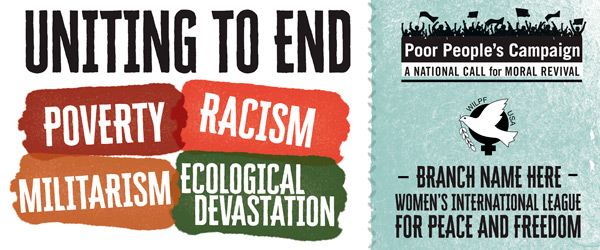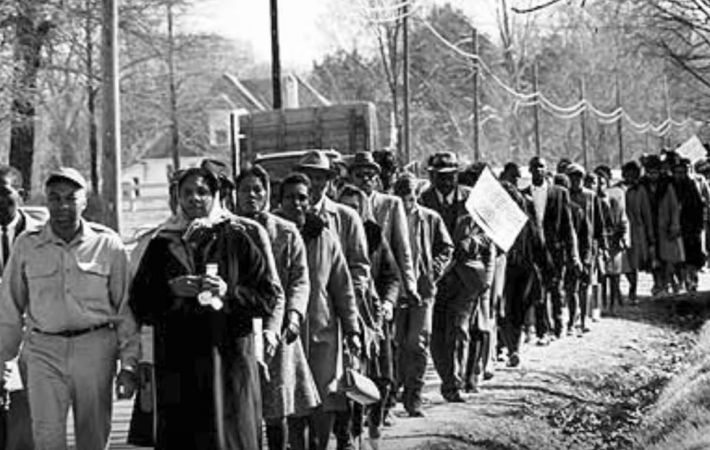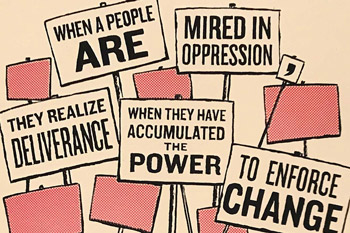Palestinian girl Malak Al-Khateb, 14, is welcomed by family members as she arrives to Beitin village near Ramallah after being released from an Israeli military prison on February 13, 2015. Al-Khateb, accused of throwing stones at Israeli soldiers, was arrested and subjected to interrogation and harsh treatment without legal representation. She was sentenced to two months in prison and her family was fined NIS 6,000 ($1500). Photo: Oren Ziv, Activestills.org
By Ellen Rosser
Middle East Committee
Palestine, February 2018
The current situation in both Palestine and Israel is unstable: both are in a state of flux. In Palestine, a unity government has been established and has taken over at least part of the government of Gaza. The new government controls the borders and some other functions, but the people of Gaza have not yet received any benefit. The border with Egypt is still closed most of the time and President Abbas has ruled that Gaza must pay for its own electricity.
Given these conditions, the people still exist with only four hours of electricity a day and premature babies in the hospitals are dying from lack of incubators. Hamas, however, has pledged to cooperate with the unity government, which is undoubtedly preventing the small parties like Islamic Jihad from shooting rockets into southern Israel. (In 2014, when Hamas turned the government over to the unity government, Hamas did not continue to function as security and, when the small parties shot rockets into southern Israel, Netanyahu used that as the excuse to attack Gaza with greatly disproportionate force, killing over 2,000 civilians, including more than 500 children.)
Gaza’s problems are compounded by the fact that the US has just put on its Global Terrorist Watch List Ismail Haniya, so that Haniya will not be able to travel to other countries to solicit funds for Gaza or Hamas. Haniya was elected head of the Hamas Politburo in May 2017, making him the group’s senior political leader. The US designation of Haniya as a terrorist is absurd, since Haniya was the one who prevented rockets from being shot into southern Israel and thus has saved Israeli lives. Military figures in Israel confirmed that Hamas squads prevented rockets being shot, and Haniya has long been viewed as part of the pragmatic wing of Hamas. Moreover, the new Hamas Charter, which Haniya helped to create, confirms Sheik Yassin’s previous acceptance of the two-state solution to the Israeli-Palestinian conflict.
Elections in Palestine are supposed to occur within six months after a unity government is formed. Abbas has governed for the past eight years without a mandate from the Palestinian people. Indeed, he is quite unpopular: a large majority of Palestinians wish that he would resign. However, his reaction to Trump’s unlawfully planning to move the US Embassy to Jerusalem may increase his popularity: he has declared that Palestine will no longer participate in security coordination with Israel as it has done since the Oslo Accords. With Palestinian elections coming soon, one wonders if Netanyahu convinced the US to put Haniya on the Global Terrorist Watch List in order to prevent his being elected president by the Palestinian people (as he was in 2006).
The Israeli occupation, meanwhile, has continued its brutal oppression of the Palestinian people. In January, six Palestinians, four of them teenagers, were shot dead by Israeli soldiers (extrajudicial killings). Over 400 Palestinian children are imprisoned (illegally under the Fourth Geneva Convention) in Israeli prisons, including 16-year-old Ahed Tamimi, who was arrested for slapping an Israeli soldier after he shot her 16-year-old cousin Mohammed in the face. And the entire peaceful Palestinian village of Susiya, which is in Area C and therefore under total Israeli control, is scheduled for demolition because is in the middle of Israeli settlements, all of which were illegally built. Israel wants to ethnically cleanse the area, but uses the excuse that Susiya does not have a master plan for building (Israel rarely authorizes master plans for Palestinian villages). The Palestinian people, therefore, continue to suffer.
Israel, February 2018
The situation in Israel is also in a state of flux since Prime Minister Netanyahu has been indicted for corruption. Elections should be scheduled soon to replace him. Since Israel currently has the most right-wing government in its history and Netanyahu is moderate in comparison, it is impossible to determine whether the next prime minister will be more peace-oriented than Netanyahu—or less. For example, when the Knesset recently passed a bill to annex the settlements in the West Bank to Israel, Netanyahu vetoed it, probably to respect Trump’s position that the settlements are not helpful for peace. Netanyahu is obligated to Trump, of course, for Trump’s reckless and illegal decision to move the US embassy to Jerusalem.
Even the traditionally peace-oriented Labor Party, the party of assassinated, peace-oriented Prime Minister Yitzhak Rabin, is not particularly strong on peace anymore. Its new head, Avi Gabbay, who was in Netanyahu’s cabinet, stated recently that no settlers would have to move if peace was achieved. Gabbay has also been quoted as saying, “I believe that the Land of Israel belongs to the Jews…. God promised Abraham the entire Land of Israel, but I also believe that since there are 4.5 million Arabs here, we have to compromise in order to create a situation in which we live in our country with a Jewish majority.” Many think that he would offer the Palestinians not an independent Palestinian state that would meet the requirements of international law, but something less than that, something they could not accept.
Therefore, as Uri Avnery has recently stated, the current prospect for peace between Israel and Palestine is not encouraging. But we still can hope for change—if the BDS (Boycott, Divestment, Sanctions) movement is awarded the Nobel Peace Prize and that inspires many more European countries to recognize Palestine and push for an end of the occupation, or if Russia or China becomes a strong mediator for peace to replace the now disqualified United States, or if the International Criminal Court moves on the Palestinian case and forces the international community to act to prevent further Israeli violations of international law, or if the Israeli left organizes massive demonstrations to force Israel to make peace. We can wish and work for a just peace, and hope that one or more of the above events will materialize to bring an end to the cruel and illegal Israeli occupation of Palestine.
 A strong racial justice movement with members who are racially aware and cognizant of the history of racism in the US and the importance of ending racism. What we’re reading and discussing: White Rage by Carol Anderson.
A strong racial justice movement with members who are racially aware and cognizant of the history of racism in the US and the importance of ending racism. What we’re reading and discussing: White Rage by Carol Anderson.








 Perhaps it’s all of these—and none of these. Perhaps this campaign has given us hope, a hope grounded in some very concrete realities.
Perhaps it’s all of these—and none of these. Perhaps this campaign has given us hope, a hope grounded in some very concrete realities. Another wellspring of hope is the vision of 40 days of massive, coordinated nonviolent civil disobedience. Between Mother’s Day on May 13, 2018, and the Summer Solstice on June 21, we are asked to participate in events in our home states and localities, and in Washington, DC.
Another wellspring of hope is the vision of 40 days of massive, coordinated nonviolent civil disobedience. Between Mother’s Day on May 13, 2018, and the Summer Solstice on June 21, we are asked to participate in events in our home states and localities, and in Washington, DC.


